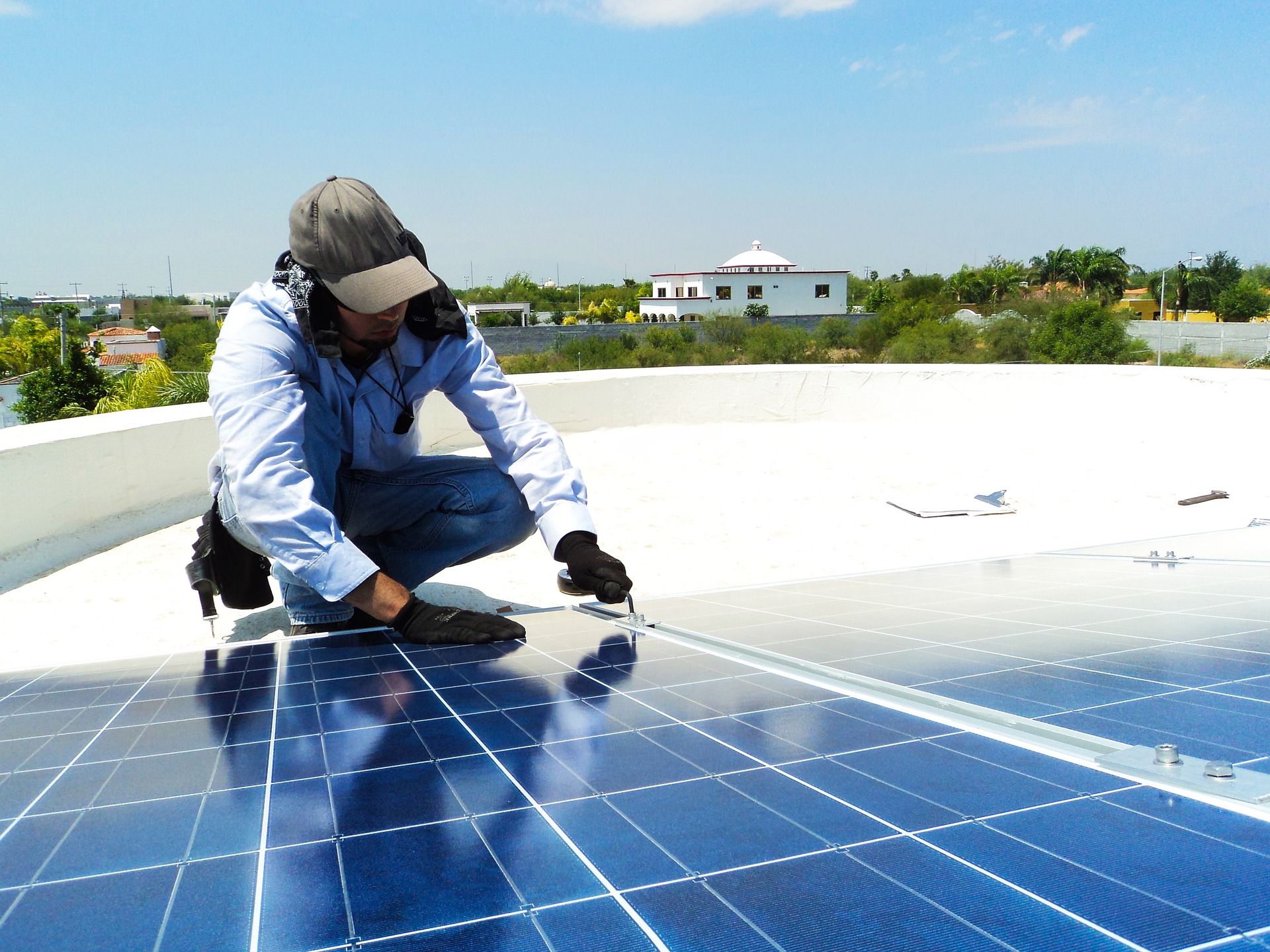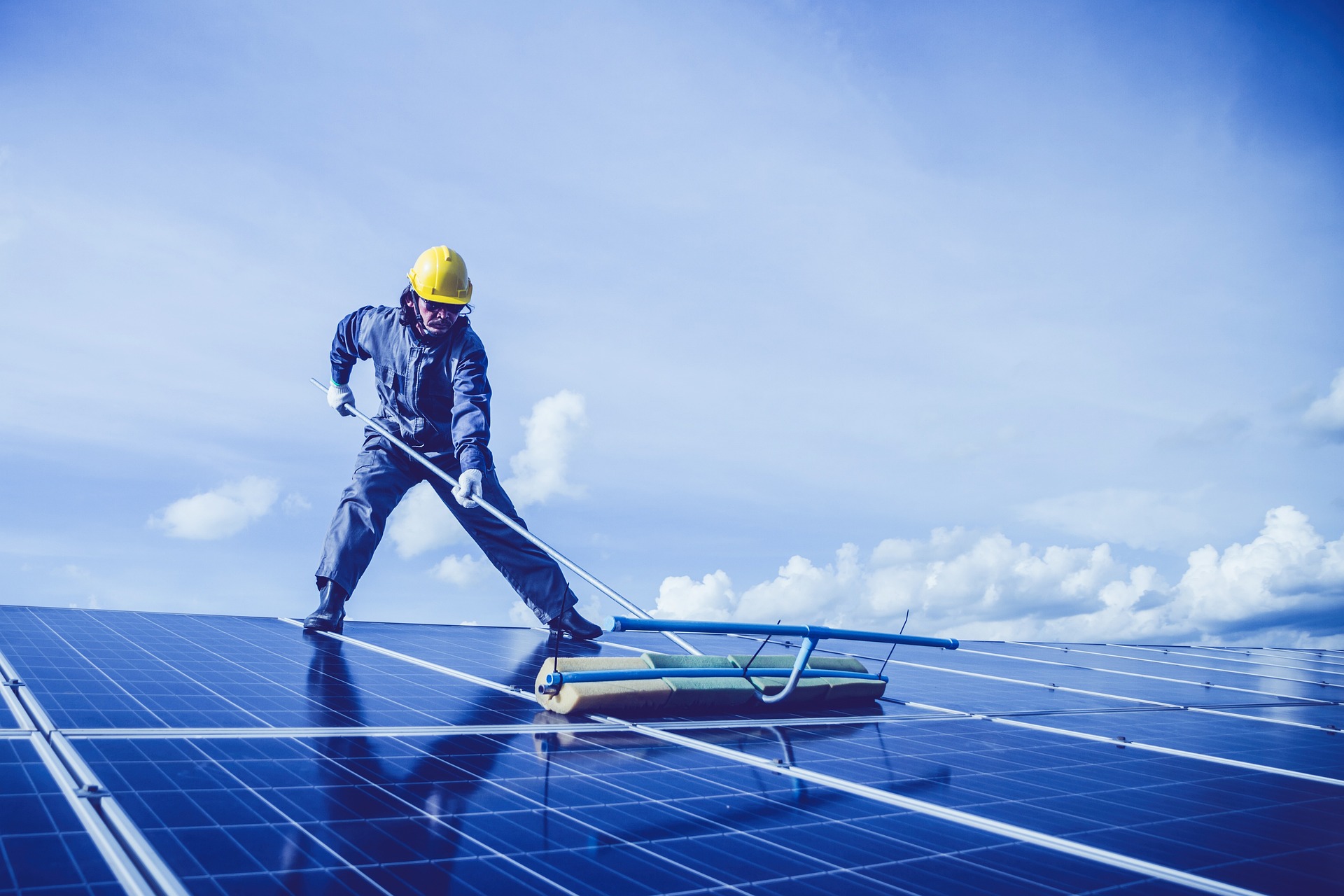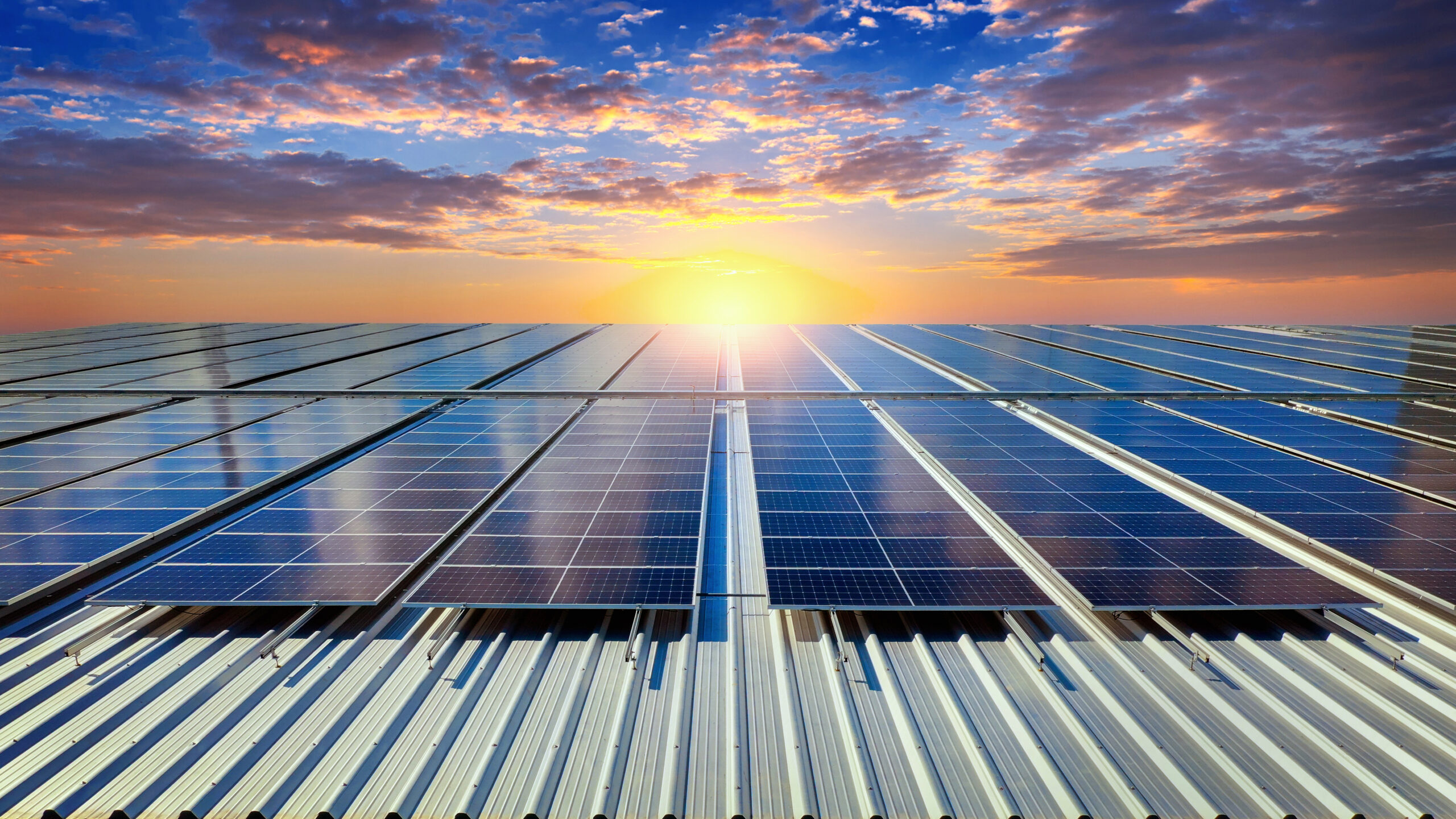-
Tips for Cleaning My Solar Panels
Before setting out to clean your panels, you must keep in mind one crucial point: Avoid scratching or damaging the glass at all costs. You don’t want your energy production to plummet.
When cleaning solar panels, you will always be gentle with them by using these solar panel cleaning tips and tricks:
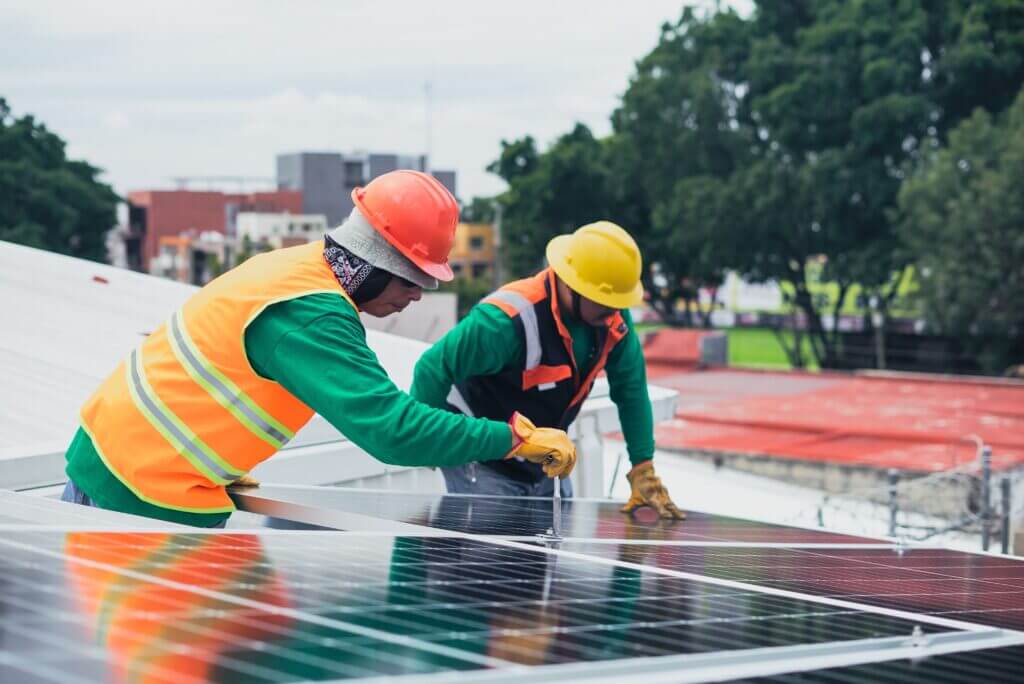
- Solar panel models are not all created the same. It’s prudent to check with your product’s manufacturer to see if they have specific instructions for cleaning.
- Consider using a garden hose first. But if grime and dirt have built up on your equipment, it’s time for a thorough cleaning.
- Most likely, the only equipment you need is a bucket with clean, warm water, a soft cloth, dish soap, and a soft brush or squeegee.
- Pick an evening, a morning, or a cool day to do the cleaning. You don’t want to get burned by hot panels on a sunny day. If it’s too sunny, the soapy water can evaporate before you get time to wipe it away, which can leave a smear or residue that can reduce your panels’ efficiency.
- Avoid splashing cold water on a hot glass surface. It can lead to cracks due to sudden contraction.
- Apply the warm water and dish soap on the panels’ surfaces using a soft cloth or sponge. Do NOT clean the wiring underneath.
- Use a squeegee to get rid of dirty water.
- Never step on your panels, as this can damage them and cause premature failure.
- Avoid brushes with sharp bristles that can scratch your solar glass surface.
If you live near an airport or a route frequented by trucks, expect to find a few oily stains on your panels. In this case, you can use a rag and a little isopropyl alcohol to remove them.
Pro Tip: Strong cleaning fluids should not touch your expensive investment at all. Harsh chemicals and liquids like laundry detergents, ammonia, and acids can react with or streak the glass surface, leading to damages and a loss of energy production.
-
Can Cleaning Solar Panels Improve the Performance of PV Systems?
As we’ve seen so far, the short answer is, “The impact of dirty solar panels on solar power production depends on various factors.” But we’re interested in the long answer, right? Let’s dig into the science and math a bit:
An experiment involving solar panels on a low-slope roof sought out the difference in energy output before and after a thorough cleaning.
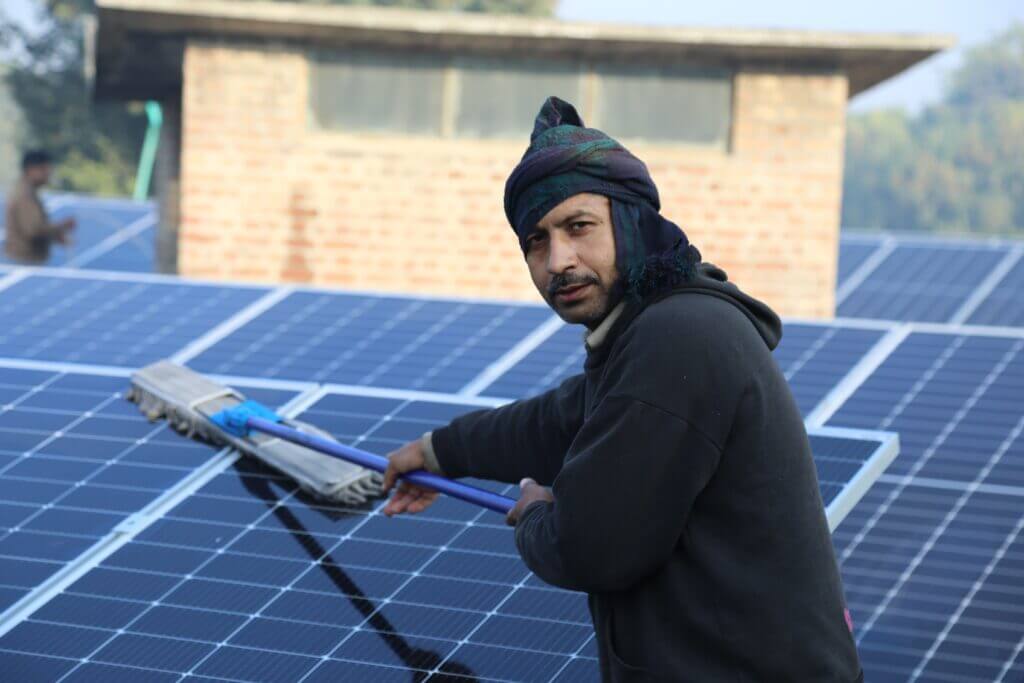
The researchers found an average 3.5% boost in energy production (the amount of power produced over time) after cleaning the panels using a soft rag and water. The implication here is that the energy yield increase was low, despite the high amount of dirt accumulation.
Things became interesting when heavy rain did the cleaning job. The average performance increased by only 1.9% after rainwater pounded on the dirty panels. What does that mean? A good shower from the skies can take care of some cleanup, but it’s not as effective as the proper equipment and some elbow grease.
You may want to check how much your dirty solar panels are costing you in terms of energy generation. Here’s a simple formula for determining the value of solar panel cleaning:
Yearly Energy Production (kWh) × Production Loss From Dirty Panels × Electricity Cost per kWh
For example, if your residential solar energy system can produce 10,000 kWh of electricity per year, and you assume a 5% loss of production due to panels being dirty, and you pay $.20 cents per kWh for electricity from your utility, your yearly cost of electricity loss from dirty panels is as follows:
10,000 × .05 × .20 = $100
A 5% electricity production loss might not sound like a lot, but it can definitely add up, and suddenly you’re paying way more to your utility company on your electricity bill than you need to be.
-
Solar Panel cleaning – What to do, and What NOT to do!
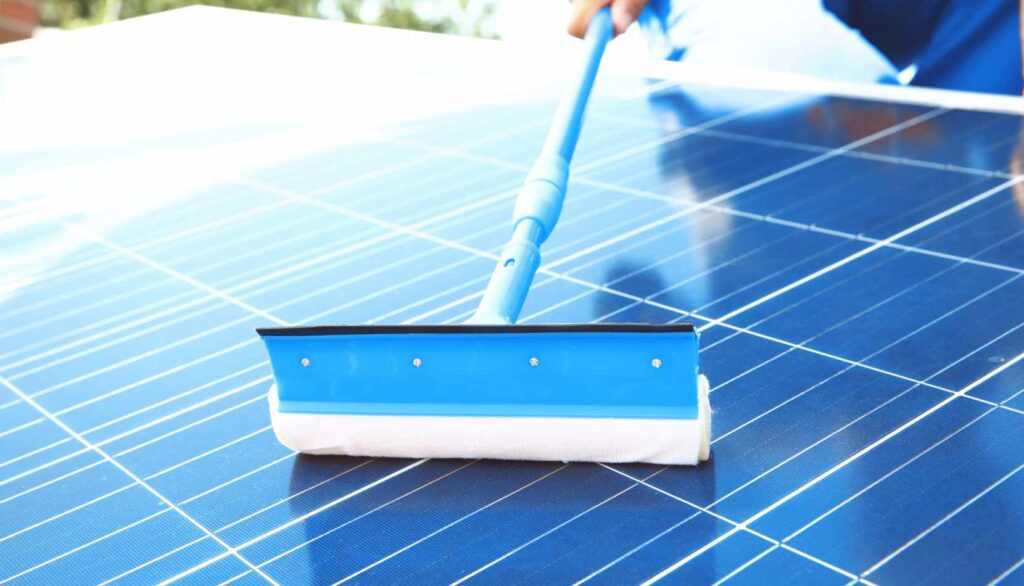
Why do solar panels need cleaning?
Answer: To improve your solar panel’s performance and reliability! Let us explain…
Your solar panels will be installed with the correct amount of tilt, which will mean they will generally self-clean by taking advantage of rain running across them to keep clean. However, here in Australia, we can experience particularly long periods of drought, during which dust build-up, bird’s droppings and other air pollution will accumulate on your solar panels over time.
Also, if you have trees close by your solar panels, particularly deciduous ones, these will drop leaves onto your panels as well as attract birds.Each of the above-mentioned build-ups can affect the electric generation of your solar panels per module. After all, it makes sense that solar panels will work most effectively when their view to the sun is not obstructed by dirt buildup and other debris
How often should I clean my solar panels?
As a general rule, considering our harsh Australian climate, you want to aim to clean your solar panels at least every six months.
However, if we are experiencing extreme climate conditions for a prolonged period of time such as fires, dust storms or excessive rainstorms, then you may need to clean your panels more often.
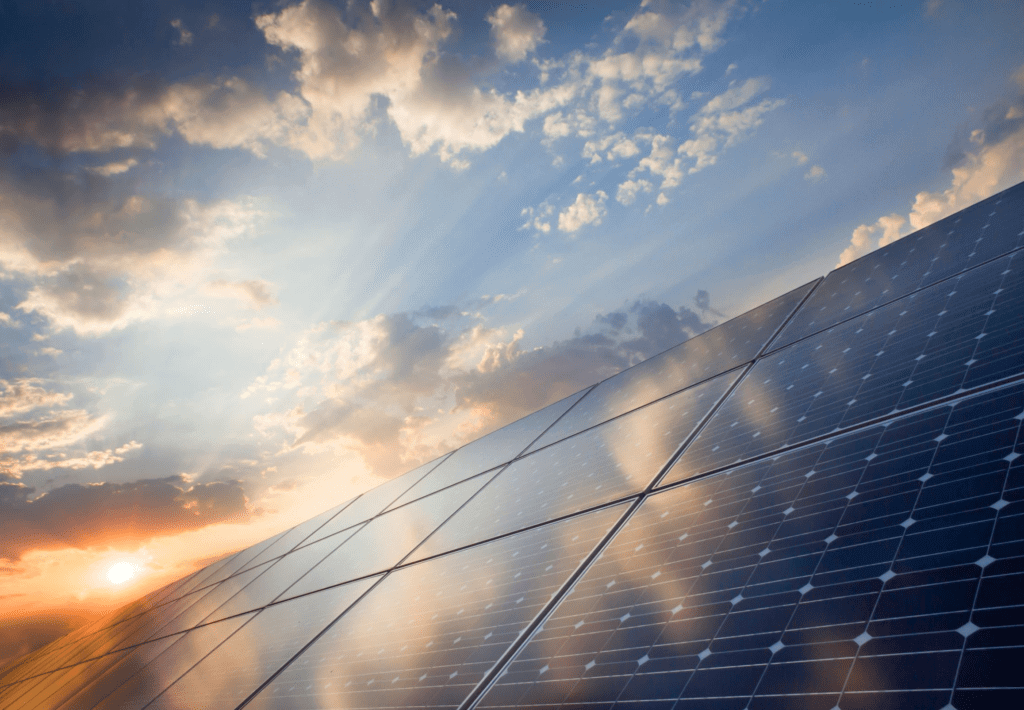
Locations that may require more frequent cleaning
If your home is positioned within close range of a highway or a construction site – both of which will produce excess airborne debris, you will need to practice more frequent solar panel cleaning.
Also, homes within coastal areas such as many of our beautiful suburbs within the Shoalhaven should consider the buildup of marine layer residue, which can leave an obstructive film that too will require more frequent cleaning.
How to clean your solar panels
Plan for safety first
Before jumping up on your roof with your cleaning gear and good intentions, stop and consider your safety first. Basically, nobody should be up on their roof without being attached to a safety harness or wearing a hard hat. Check out some information about working safely at heights here.
TIP: Choose a cool day to get up on your roof and clean, as roofs generally hold a lot of heat which can make your task a whole lot harder!
Contact
Level 4 / 44 Lake View Drive, Scoresby, VIC, 3179, Australia
T: 1800 786 090
E: Info@solarpanelvictoria.website
